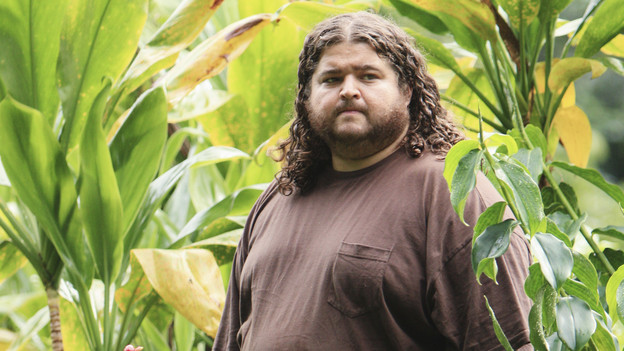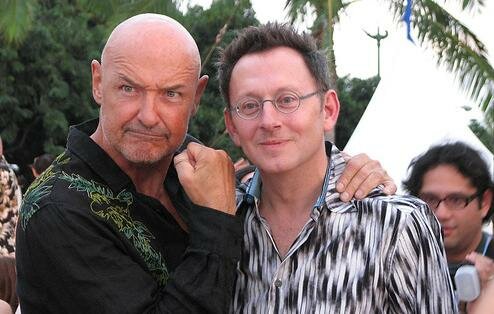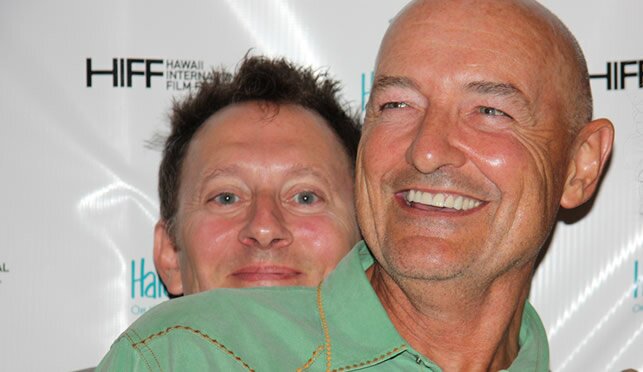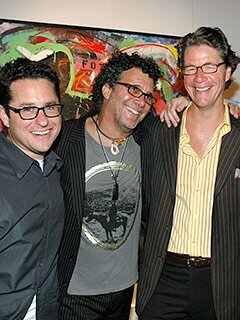Is the end of Lost everything you thought it would be, from the very beginning?
Oh, no way! No. There are little threads and elements, here and there, but truthfully, when we started it, we didn’t know exactly what was in the hatch. We had ideas, but we didn’t know to what extent it would be. The notion of The Others was there, but we didn’t know exactly what that would mean. Damon hadn’t come up with the idea of flash forwards yet. To see where we are and what they’ve created is insanely gratifying and it’s something that no one could have predicted at the beginning of it. The evolution of it is really part of their glorious experiment of taking a show that we were all, at the beginning, saying, “How do you make this a series?,” and to see what Damon and Carlton have done is amazing to me.
You had the idea for the basis of it though, right?
There were a lot of ideas, but the specificity with which the thing played out was part of that leap of faith that it was going to work. That doesn’t mean that you plan everything out. You have big ideas, but when the better bigger ideas show up, you go with them.
What have you learned from Lost that you can take to other genre shows?
Lost is a special example. It’s hard to know. You could say that you shouldn’t get too intricately serialised because, at a certain point, it’s difficult. But, the truth is, I don’t know if Lost would have worked if it had been anything else, and I don’t know how you would apply that to another show.
If the minutiae and mythology hadn’t worked with the viewers, would you have tried to change Lost, or would you have just walked away?
It’s hard to imagine the alternate universe version of Lost where you think, “Oh, that’s the version that is the other way to tell the story.” It really does feel like the trajectory that was started had no obvious place to go. Over time, they created this amazing narrative that is really just a result of that leap of faith and trusting that the characters will tell us what the show is, as much as anything. Damon and Carlton really did an amazing job.
With the network announcing an end-date for the show so far in advance, did that help immeasurably, in terms of the storytelling?
That’s something that Damon and Carlton insisted upon. They said, “Tell us how fast we’re running, so that we know what the end-game is and where the finish line is.” If you don’t know whether it’s ten seasons or six seasons, you’re spinning your wheels. I’m thrilled to see billboards that say, “The Final Season.” You don’t see that very often. To know that it’s a show that’s going to end on its terms means that there will be a sense of inevitability to it, and not a sense of a series reacting to a marketplace or a viewership. It’s really cool.
You put so much heart and soul into television and now you also have movies. How are you going to balance the two?
Part of it is working with people who are awesome and whose work blows your mind, whether it’s with Jeff and Joel on Fringe, or Damon and Carlton on Lost. There are some producers who find material, help get it on the air and then oversee and have a team that works with them. That’s what I do, but I also sometimes write and direct as well. It might seem like I’m abandoning the thing, but what I’m trying to do is get it on its feet. While I may not have the patience of people like Joss [Whedon], David Kelley, Damon or Chris Carter, who are there from the beginning, for however many seasons, because I am a little more ADD than that, I would never leave a show, not knowing that it’s in worthy, brilliant hands that I honestly think could do a far better job, in the long term, than I could. I never know exactly how things are going to play out, but that’s how it’s been so far.

EXCLUSIVE: Big news for Lost fans: series co-star Jorge Garcia has joined another J.J. Abrams drama about an island. Garcia is set to play a lead on the Fox pilot Alcatraz, which is executive produced by Lost co-creator/executive producer Abrams. The project, described to be “about secrets and the most infamous prison of all time,” centers on a group of missing Alcatraz prisoners and guards who reappear in the present day. It chronicles the efforts of a team of FBI agents to track them down and unravel the mystery behind their disappearance thirty years prior. Garcia will play the hippy geek Dr. Diego Soto, the world’s foremost expert on Alcatraz. Actor-comedian Garcia, who landed his first TV series role on the CBS comedy Becker, rose to fame as one of the key cast members on ABC’s hit drama Lost. He was the first actor cast in the Lost pilot, just like he is now on Alcatraz. The role of Hugo “Hurley” Reyes on Lost was tailor-made for him. Similarly, he was the first and only actor the producers of Alcatraz approached for the role of Dr. Soto. Garcia, repped by APA and KLWG Entertainment, guest stars on the Thanksgiving episode of CBS’ comedy How I Met Your Mother tomorrow night. He will also appear in an episode of ABC’s midseason comedy Mr. Sunshine. Garcia is the third Lost cast member eyeing return to primetime this season in a new drama series executive produced by Abrams. Michael Emerson and Terry O’Quinn star as former special ops agents in the project Odd Jobs, which landed at NBC with a put pilot commitment.
 Tags: J.J. Abrams, Jorge Garcia, Post-LOST
Tags: J.J. Abrams, Jorge Garcia, Post-LOST






Recent Comments